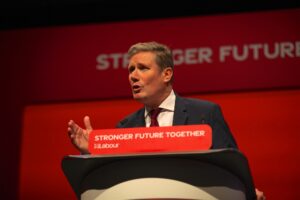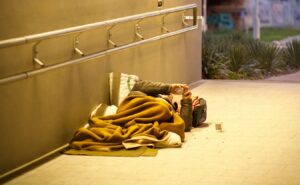
Over the last 30 years, competitiveness has been cemented into every nook and cranny of economic development and regeneration. However, as we recover from the pandemic, a lazy reliance on a system built to deliver competitiveness will only deliver even greater inequalities.
At a hyper-local level, youth groups and food banks are pitted against one another for funding pots so small their collective bidding efforts outweigh the total value of the funds
Regionally, Innovation Funds attracted over 200 applications, but only 13 organisations won.
187 organisations bore a total cost in person-hours that collectively exceeded the £1,000,000 funds available.
And at a national level, the 30-year competition over who is most in need of a New Deal for Communities, or the most promising of City Challengers, or the unluckiest of Housing Markets worthy of Renewal, continues.
The latest lottery for Shared Prosperity Funds has commenced, without anyone noticing that a competition for shared prosperity is an oxymoron – this prosperity will be shared exclusively by the winners.
Businesses compete to be the most competitive – we keep our ideas to ourselves, we protect our learning, we implement efficiencies to increase profits.
If we want an economic recovery that will build back better, level up or share prosperity more widely, recent history has shown us a competitive process will not deliver.
If we look further back at market towns, at the cooperative movement, at the ‘nation of shopkeepers,’ it is clear that communities and economies thrive from collaboration, not fear and competition. They understood that fair wages, apprenticeships, career progression and being part of a community underpin a good economy.
Kindred was launched in order to accelerate the impact of local entrepreneurialism for social good.
Our evidence, developed over a five-year period, suggests a collaborating community of small but connected social ventures can offer equitable or better returns for their founders, communities and investors than more traditional economic regeneration or social investment.
Our ambition – shared with Liverpool City Region’s Combined Authority and Power to Change – is to deliver Liverpool City Region as the UK’s most inclusive economy.
With a first-year underway, Kindred’s community has increased to 500 socially trading organisations and £1m has been committed to an initial 22 social traders experiencing growth, who believe it is sustainable post-pandemic.
That first £1m was invested following a non-competitive bidding round. It will support forest schools and adult social care and last-mile bike deliveries.
In Birkenhead, the cultural community that is growing around Future Yard and the Open Door Centre is already transforming the town, in a place that the latest Index of Multiple Deprivation ranks in England’s bottom 0.3% of electoral wards.
‘Music is a transformative opportunity,’ says Future Yard’s founder Craig Pennington. ‘Birkenhead is scarred from decades of economic decay. We need to think about music differently. Birkenhead needs it.’
Kindred has rejected systems that deliver more losers than winners. We’ve replaced it with the confidence, and robust evidence, that communities don’t need to wait for inward investors or wealth creators – the aforementioned winners of the regeneration game. We are capable of creating and recreating our own economies.
Kindred’s first investments offer a living feasibility study of what a collaborating economy can achieve, relative to our individual or competing efforts. In growing and accelerating our social impact, Kindred offers us all a new way of doing business, collaboratively: a National Recovery Pathfinder on the benefits of replacing competitiveness with collaboration.
For more information about Kindred, visit kindred-lcr.co.uk.
Erika Rushton runs Creative Economist, supporting social and cultural activists and entrepreneurs to build new economic activity in undervalued places and spaces. She has worked with Power To Change, Liverpool City Region Combined Authority and a collection of local social entrepreneurs to launch Kindred which provides support and money to increase the impact of socially-trading organisations in Liverpool City Region.
Photo by Artur Kraft and Emma Rushton
















True☘️